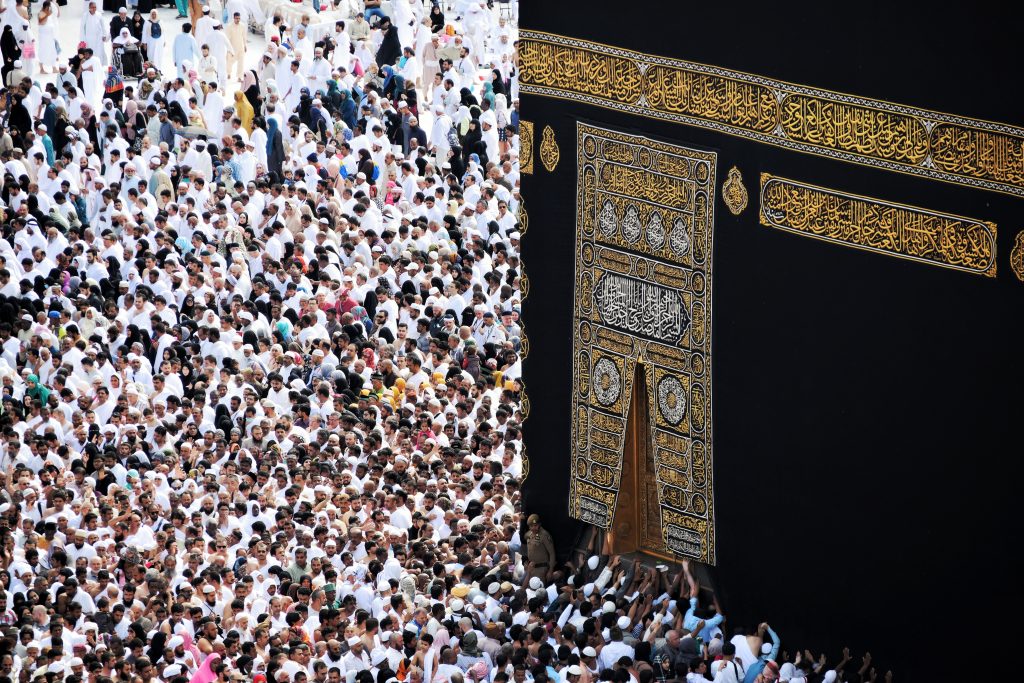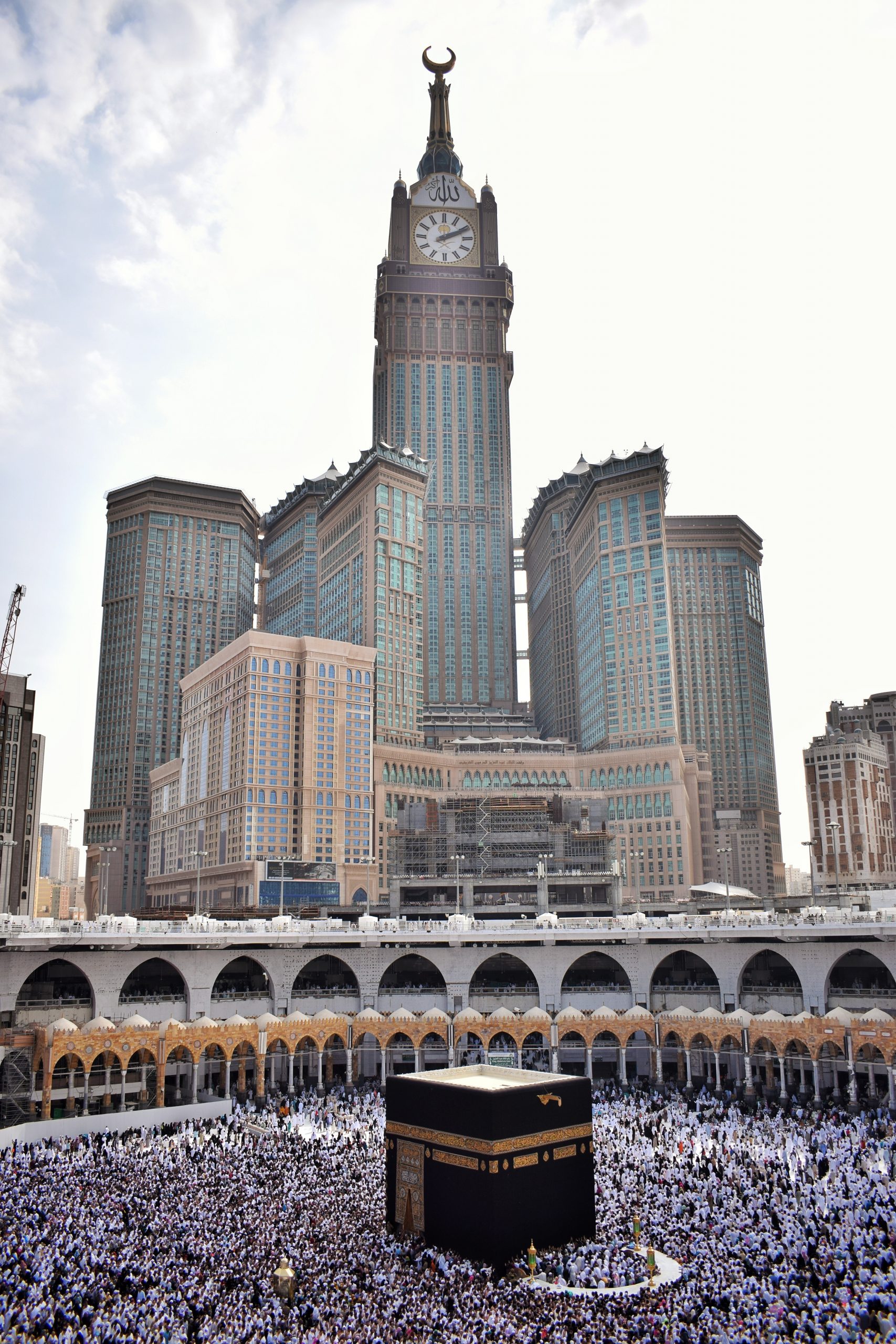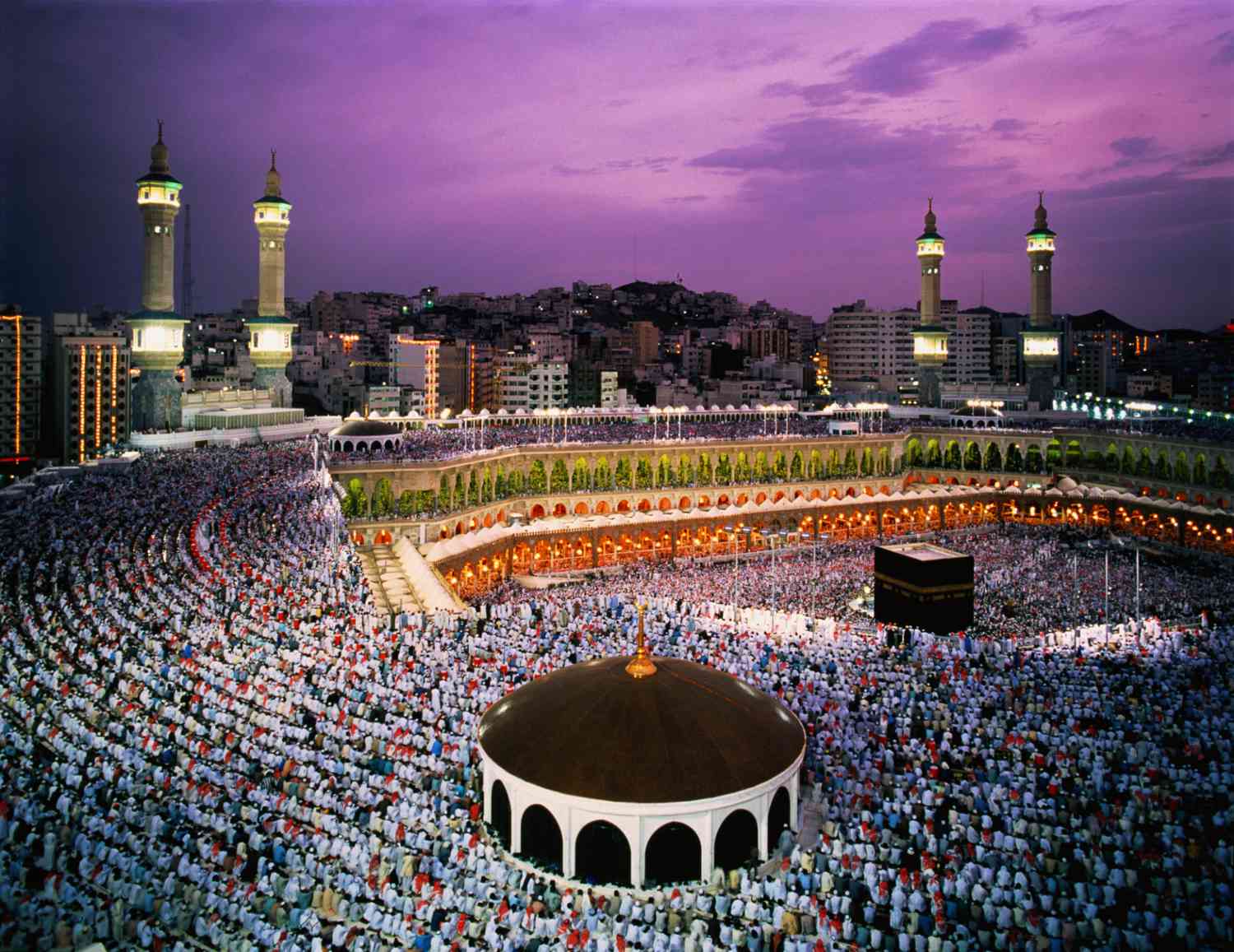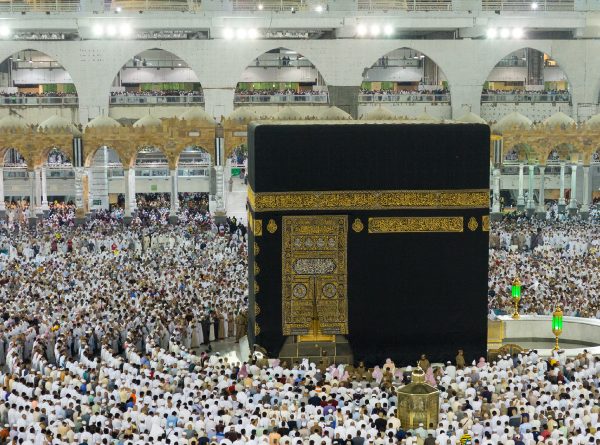Mecca, located in the western region of Saudi Arabia, holds a profound significance for Muslims worldwide. It is the holiest city in Islam and a place of great historical importance. Since ancient times, Mecca has been a city steeped in rich heritage and religious traditions.
Central to Mecca’s significance is its association with the Prophet Muhammad, the founder of Islam. Mecca is the birthplace of the Prophet Muhammad, and it is here that he received the divine revelations that form the basis of the Islamic faith. The city’s historical roots are intertwined with the life and teachings of the Prophet, making it a place of immense reverence for Muslims.
At the heart of Mecca lies the Kaaba, a sacred shrine that holds a prominent position in Islamic belief. Muslims believe the Kaaba was built by the Prophet Ibrahim (Abraham) and his son Ismail (Ishmael) as a house of worship dedicated to worshipping the one true God. The Kaaba is the focal point for Muslims during their daily prayers, as believers from all corners face it as a symbol of unity and devotion.

The voyage to Mecca, also known as the Hajj, is regarded as one of the most significant and holy travels in Islam, and it is performed by millions of Muslims every year. It is one of the Five Pillars of Islam, and all Muslims must execute it physically and financially at least once. The pilgrimage known as the Hajj takes place during the Islamic month of Dhu al-Hijjah and is comprised of a series of rites meant to honor the life of the Prophet Ibrahim (Abraham) and his family and the sacrifices they made. Typically, Muslims from all over the world will begin their pilgrimage by making their way to the country of Saudi Arabia, which is home to Mecca.

Once they have arrived in Mecca, pilgrims are expected to perform the tawaf, which consists of walking around the Kaaba, the holiest site in Islam, seven times. In addition, they drink from the well of Zamzam, perform the sa’i, which consists of walking seven times between the hills of Safa and Marwa, and spend a day in the plains of Arafat, praying to Allah for forgiveness and mercy.
Each year, Mecca becomes the destination for millions of Muslims who embark on the Hajj pilgrimage, one of the five pillars of Islam. During this sacred journey, pilgrims undertake a series of rituals and rites, following in the footsteps of the Prophet Muhammad and seeking spiritual purification and closeness to God. The Hajj is a profound communal worship experience where people from diverse backgrounds unite to fulfill their religious obligations and seek divine blessings.
The city of Mecca holds such immense spiritual significance that entry into its boundaries is restricted to Muslims only. Non-Muslims are prohibited from entering the city, ensuring its sanctity and preserving the purity of its religious practices. This exclusivity reinforces the importance of Mecca as a sacred space dedicated solely to the worship and devotion of God.
For Muslims, the journey to Mecca is a lifelong dream and a profoundly transformative experience. It is an opportunity to connect with their faith, strengthen their spiritual bonds, and partake in rituals that have been carried out for centuries. The atmosphere in Mecca during the Hajj season is electrifying as pilgrims from all walks of life come together, transcending language, culture, and nationality, united in their shared devotion to God.
The last days of the Hajj consist of the stoning of the devil, which is said to represent the Prophet Ibrahim’s resistance to Satan’s temptations, and the sacrifice of an animal, the meat of which is subsequently given to those less fortunate. The trip to Mecca is a journey in terms of distance and one of one’s spiritual development. It is necessary to have a solid commitment to Allah and faith in him, as well as patience and perseverance. It is a reminder of the unity of the Muslim community, which is referred to as the ummah, and the equality of all persons in Allah’s eyes.

Mecca stands as a testament to the enduring power of faith and the profound impact it can have on the lives of believers. It is a city where spirituality and history converge, offering Muslims a sacred space to express their devotion and experience a profound connection with their Creator. The significance of Mecca in the Islamic world cannot be overstated, as it is a constant reminder of the faith’s rich heritage and the timeless message of unity, peace, and submission to God.
Those who perform the Hajj have their lives profoundly altered due to the experience, and this change is likely to be permanent. It instills a sense of modesty, thankfulness, and connection with Allah and one’s fellow Muslims, and it fortifies the ties of brotherhood and sisterhood within the Muslim community. Because of their profound love and devotion to Allah and their religion, millions of Muslims worldwide continue to undertake the Hajj to Mecca each year, despite the hardships and difficulties that come with the journey.

Each year, Mecca becomes the destination for millions of Muslims who embark on the Hajj pilgrimage, one of the five pillars of Islam. During this sacred journey, pilgrims undertake a series of rituals and rites, following in the footsteps of the Prophet Muhammad and seeking spiritual purification and closeness to God. The Hajj is a profound communal worship experience where people from diverse backgrounds unite to fulfill their religious obligations and seek divine blessings.
The city of Mecca holds such immense spiritual significance that entry into its boundaries is restricted to Muslims only. Non-Muslims are prohibited from entering the city, ensuring its sanctity and preserving the purity of its religious practices. This exclusivity reinforces the importance of Mecca as a sacred space dedicated solely to the worship and devotion of God.
For Muslims, the journey to Mecca is a lifelong dream and a profoundly transformative experience. It is an opportunity to connect with their faith, strengthen their spiritual bonds, and partake in rituals that have been carried out for centuries. The atmosphere in Mecca during the Hajj season is electrifying as pilgrims from all walks of life come together, transcending language, culture, and nationality, united in their shared devotion to God.
How to go to Mecca
You will need to secure a visa for Saudi Arabia, which usually calls for an invitation from a sponsor already based in the country. Only then will you be able to travel to Mecca. When you have your visa, you can fly to Mecca, which has its airport, or drive from one city in Saudi Arabia to another within the country. During the time of the Hajj, the Saudi government enforces special regulations and procedures for pilgrims who are traveling to Mecca. These regulations and policies include restrictions on the ability of non-Muslims to travel to the city. Knowing the precise rules and practices that are in effect before the Hajj is essential if you intend to travel to Mecca during the holy pilgrimage season.
In any event, it is strongly suggested that you contact the Saudi Arabian embassy or consulate in your country to get the most up-to-date information and directions on how to make your way to Mecca.
Conclusion
One of the most significant travels a Muslim can make in their lifetime is the Hajj, a pilgrimage to the holy city of Mecca. The journey demands substantial preparation, devotion, and sacrifice, both physical and spiritual.
Those who choose to make this journey are rewarded with a profoundly significant experience that gives them a chance to connect with their religion and other Muslims worldwide. All activities of the Hajj rituals, such as walking around the Kaaba, standing on the plains of Arafat, and throwing stones at pillars representing the devil, have significant spiritual significance.
Pilgrims are encouraged to reflect on their lives, ask for forgiveness, and commit to living more morally while on the journey to Mecca. This can be a life-changing event for the pilgrim. As Muslims worldwide congregate in one location to worship and honor Allah, the pilgrimage can strengthen their sense of community.
In general, a pilgrimage to Mecca is an experience that only occurs once in a person’s lifetime and has the potential to have a long-lasting impact on both the individual’s spiritual life and personal life. It serves as a potent reminder of how important faith, community, and dedication are in one’s life.
People also viewed:

